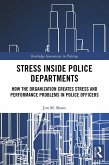Handbook of Police Psychology (eBook, PDF)
Redaktion: Kitaeff, Jack
115,95 €
115,95 €
inkl. MwSt.
Sofort per Download lieferbar

58 °P sammeln
115,95 €
Als Download kaufen

115,95 €
inkl. MwSt.
Sofort per Download lieferbar

58 °P sammeln
Jetzt verschenken
Alle Infos zum eBook verschenken
115,95 €
inkl. MwSt.
Sofort per Download lieferbar
Alle Infos zum eBook verschenken

58 °P sammeln
Handbook of Police Psychology (eBook, PDF)
Redaktion: Kitaeff, Jack
- Format: PDF
- Merkliste
- Auf die Merkliste
- Bewerten Bewerten
- Teilen
- Produkt teilen
- Produkterinnerung
- Produkterinnerung

Bitte loggen Sie sich zunächst in Ihr Kundenkonto ein oder registrieren Sie sich bei
bücher.de, um das eBook-Abo tolino select nutzen zu können.
Hier können Sie sich einloggen
Hier können Sie sich einloggen
Sie sind bereits eingeloggt. Klicken Sie auf 2. tolino select Abo, um fortzufahren.

Bitte loggen Sie sich zunächst in Ihr Kundenkonto ein oder registrieren Sie sich bei bücher.de, um das eBook-Abo tolino select nutzen zu können.
This collection surveys everything from the beginnings of police psychology and early influences on the profession, to pre-employment screening, assessment, and evaluation, to clinical interventions.
- Geräte: PC
- ohne Kopierschutz
- eBook Hilfe
- Größe: 4.58MB
Andere Kunden interessierten sich auch für
![Police Work (eBook, PDF) Police Work (eBook, PDF)]() Peter B. AinsworthPolice Work (eBook, PDF)52,95 €
Peter B. AinsworthPolice Work (eBook, PDF)52,95 €![Forensic Psychology (eBook, PDF) Forensic Psychology (eBook, PDF)]() Forensic Psychology (eBook, PDF)40,95 €
Forensic Psychology (eBook, PDF)40,95 €![Child to Parent Aggression and Violence (eBook, PDF) Child to Parent Aggression and Violence (eBook, PDF)]() Hue San KuayChild to Parent Aggression and Violence (eBook, PDF)40,95 €
Hue San KuayChild to Parent Aggression and Violence (eBook, PDF)40,95 €![Routledge International Handbook of Sexual Homicide Studies (eBook, PDF) Routledge International Handbook of Sexual Homicide Studies (eBook, PDF)]() Routledge International Handbook of Sexual Homicide Studies (eBook, PDF)46,95 €
Routledge International Handbook of Sexual Homicide Studies (eBook, PDF)46,95 €![Applied Psychology for Foundation Year (eBook, PDF) Applied Psychology for Foundation Year (eBook, PDF)]() Wendy GarnhamApplied Psychology for Foundation Year (eBook, PDF)42,95 €
Wendy GarnhamApplied Psychology for Foundation Year (eBook, PDF)42,95 €![Making an Impact on Policing and Crime (eBook, PDF) Making an Impact on Policing and Crime (eBook, PDF)]() Making an Impact on Policing and Crime (eBook, PDF)40,95 €
Making an Impact on Policing and Crime (eBook, PDF)40,95 €![Stress Inside Police Departments (eBook, PDF) Stress Inside Police Departments (eBook, PDF)]() Jon ShaneStress Inside Police Departments (eBook, PDF)42,95 €
Jon ShaneStress Inside Police Departments (eBook, PDF)42,95 €-
-
-
This collection surveys everything from the beginnings of police psychology and early influences on the profession, to pre-employment screening, assessment, and evaluation, to clinical interventions.
Dieser Download kann aus rechtlichen Gründen nur mit Rechnungsadresse in A, B, BG, CY, CZ, D, DK, EW, E, FIN, F, GR, HR, H, IRL, I, LT, L, LR, M, NL, PL, P, R, S, SLO, SK ausgeliefert werden.
Produktdetails
- Produktdetails
- Verlag: Taylor & Francis eBooks
- Seitenzahl: 666
- Erscheinungstermin: 11. Juni 2019
- Englisch
- ISBN-13: 9780429554667
- Artikelnr.: 56958581
- Verlag: Taylor & Francis eBooks
- Seitenzahl: 666
- Erscheinungstermin: 11. Juni 2019
- Englisch
- ISBN-13: 9780429554667
- Artikelnr.: 56958581
- Herstellerkennzeichnung Die Herstellerinformationen sind derzeit nicht verfügbar.
Jack Kitaeff, PhD, JD, is a licensed clinical psychologist in the Commonwealth of Virginia. He received his undergraduate education at Brooklyn College of the City University of New York, and his graduate psychology education at the State University of New York and the University of Mississippi. He received his law degree from the Antonin Scalia School of Law at George Mason University, and completed a legal clerkship with the United States Attorney's Office, Eastern District of Virginia. Dr. Kitaeff completed a clinical psychology internship at Walter Reed Army Medical Center, and served as a psychologist and Major in the U.S. Army Medical Service Corps. He later became the first police psychologist for the Arlington County Police Department, where he established a pre-employment psychological screening program for all police applicants, and for officers applying for special units such as SWAT, Hostage Negotiations, and VICE. He has been the consulting police psychologist for numerous law enforcement agencies. He has also served as the Director of Psychology for the Commonwealth of Virginia's Northern Virginia Mental Health Institute. He is an adjunct professor in the Department of Criminology, law and Society at George Mason University, and an adjunct professor with the George Washington University Department of Psychology. He is also a contributing faculty member in the School of Psychology at Walden University. He is a Diplomate in Police Psychology from the Society of Police and Criminal Psychology, a Fellow in the American College of Legal Medicine, and a member of the American Psychological Association. He maintains a private practice in clinical psychology in Fairfax, Virginia.
Preface
About the Editor
Chapter 1: Introduction and History of Police Psychology, J. Kitaeff
Part 1. General Practice
Chapter 2: Police Psychological Consultation Services to Public Safety,
J.A. Davis
Chapter 3: Legal Issues Related to Hiring and Promotion of Police Officers,
A. Gutman
Chapter 4: Ethical Issues in Police Psychology, J.L. McCutcheon
Chapter 5: Police vs. Probation/Surveillance Officers: Similarities and
Differences, D.S. Herrmann, B. Broderick
Part 2. Pre-employment Psychological Screening
Chapter 6: Criterion-Related Psychological Evaluations, P.A. Weiss, W.U.
Weiss
Chapter 7: Actuarial vs. Clinical Judgment Prediction Models in
Pre-employment Psychological Screening of Police Candidates, M.J. Cuttler
Chapter 8: Appraising and Managing Police Officer Performance, R. Jacobs,
C. Thoroughgood, K. Sawyer
Chapter 9: Assessments for Selection and Promotion of Police Officers, R.
Jacobs, L. Cushenbery, P.E. Grabarek
Chapter 10: The Integration Section of Forensic Psychological Reports in
Law Enforcement: Culturally Responsive Ending Words, R. Johnson
Chapter 11: Challenging the Police De-selection Process, J.M. Arcaya
Part 3. Training and Evaluation
Chapter 12: Couples Counseling/Assessment and Use of the Inwald
Relationship Surveys, R. Inwald, E.A. Willman, S. Inwald
Chapter 13: Fitness-For-Duty Evaluations, D. Corey
Chapter 14: Methods for Real-Time Assessment of Operational Stress During
Realistic Police Tactical Training, D. Brisinda, R. Fenici, A.R. Sorbo
Chapter 15: Evolution of Police Leadership Enhancement, A. Park and J.S.
Herndon
Chapter 16: When Cops Kill: Understanding the Psychology of Deadly Force
Encounters, L. Miller
Part 4. Police Procedure
Chapter 17: Police Use of Force, F.J. Gallo
Chapter 18: Hostage Negotiations, W.C. Mullins, M.J. McMains
Chapter 19: Domestic Violence: An Analysis of the Crime and Punishment of
Intimate Partner Abuse, S.L. Brooke, T.K. Straus
Chapter 20: Police Interviews with Suspects: International Perspectives,
K.A. Roberts, V. Herrington
Chapter 21: Applying Restorative Justice Principles in Law Enforcement, R.
Myers
Part 5. Clinical Practice
Chapter 22: Police Personality: Theoretical Issues and Research, G.L.
Gerber
Chapter 23: Police and Public Safety Complex Trauma and Grief: An
Eco-ethological Existential Analysis, D. Rudofossi
Chapter 24: Suicide in Law Enforcement, A. Liang, A.A. Abrams, K. Stevens,
B. Frechette
Part 6. Treatment and Dysfunction
Chapter 25: Cops in Trouble: Psychological Strategies for Helping Officers
Under Investigation, Criminal Prosecution, or Civil Litigation, L. Miller
Chapter 26: Evidence-Based Psychological Interventions to Promote Officer
Resiliency, S. B. Stern & M. Galietta
Chapter 27: Critical Incident Reactions and Early Interventions, S. Best,
E. Kirschman, A. Artwohl
Chapter 28: Critical Knowledge for Clinicians Debriefing Critical Incidents
in Law Enforcement, J. E. Roland
Chapter 29: The Disconnected Values Model: A Brief Intervention of
Improving Healthy Habits and Coping With Stress in Law Enforcement, M.H.
Anshel
Chapter 30: Mentally Ill-Crying "Help!" Police & Public Health Prevention,
Intervention & Post-vention, D. Rudofossi
About the Editor
Chapter 1: Introduction and History of Police Psychology, J. Kitaeff
Part 1. General Practice
Chapter 2: Police Psychological Consultation Services to Public Safety,
J.A. Davis
Chapter 3: Legal Issues Related to Hiring and Promotion of Police Officers,
A. Gutman
Chapter 4: Ethical Issues in Police Psychology, J.L. McCutcheon
Chapter 5: Police vs. Probation/Surveillance Officers: Similarities and
Differences, D.S. Herrmann, B. Broderick
Part 2. Pre-employment Psychological Screening
Chapter 6: Criterion-Related Psychological Evaluations, P.A. Weiss, W.U.
Weiss
Chapter 7: Actuarial vs. Clinical Judgment Prediction Models in
Pre-employment Psychological Screening of Police Candidates, M.J. Cuttler
Chapter 8: Appraising and Managing Police Officer Performance, R. Jacobs,
C. Thoroughgood, K. Sawyer
Chapter 9: Assessments for Selection and Promotion of Police Officers, R.
Jacobs, L. Cushenbery, P.E. Grabarek
Chapter 10: The Integration Section of Forensic Psychological Reports in
Law Enforcement: Culturally Responsive Ending Words, R. Johnson
Chapter 11: Challenging the Police De-selection Process, J.M. Arcaya
Part 3. Training and Evaluation
Chapter 12: Couples Counseling/Assessment and Use of the Inwald
Relationship Surveys, R. Inwald, E.A. Willman, S. Inwald
Chapter 13: Fitness-For-Duty Evaluations, D. Corey
Chapter 14: Methods for Real-Time Assessment of Operational Stress During
Realistic Police Tactical Training, D. Brisinda, R. Fenici, A.R. Sorbo
Chapter 15: Evolution of Police Leadership Enhancement, A. Park and J.S.
Herndon
Chapter 16: When Cops Kill: Understanding the Psychology of Deadly Force
Encounters, L. Miller
Part 4. Police Procedure
Chapter 17: Police Use of Force, F.J. Gallo
Chapter 18: Hostage Negotiations, W.C. Mullins, M.J. McMains
Chapter 19: Domestic Violence: An Analysis of the Crime and Punishment of
Intimate Partner Abuse, S.L. Brooke, T.K. Straus
Chapter 20: Police Interviews with Suspects: International Perspectives,
K.A. Roberts, V. Herrington
Chapter 21: Applying Restorative Justice Principles in Law Enforcement, R.
Myers
Part 5. Clinical Practice
Chapter 22: Police Personality: Theoretical Issues and Research, G.L.
Gerber
Chapter 23: Police and Public Safety Complex Trauma and Grief: An
Eco-ethological Existential Analysis, D. Rudofossi
Chapter 24: Suicide in Law Enforcement, A. Liang, A.A. Abrams, K. Stevens,
B. Frechette
Part 6. Treatment and Dysfunction
Chapter 25: Cops in Trouble: Psychological Strategies for Helping Officers
Under Investigation, Criminal Prosecution, or Civil Litigation, L. Miller
Chapter 26: Evidence-Based Psychological Interventions to Promote Officer
Resiliency, S. B. Stern & M. Galietta
Chapter 27: Critical Incident Reactions and Early Interventions, S. Best,
E. Kirschman, A. Artwohl
Chapter 28: Critical Knowledge for Clinicians Debriefing Critical Incidents
in Law Enforcement, J. E. Roland
Chapter 29: The Disconnected Values Model: A Brief Intervention of
Improving Healthy Habits and Coping With Stress in Law Enforcement, M.H.
Anshel
Chapter 30: Mentally Ill-Crying "Help!" Police & Public Health Prevention,
Intervention & Post-vention, D. Rudofossi
Preface
About the Editor
Chapter 1: Introduction and History of Police Psychology, J. Kitaeff
Part 1. General Practice
Chapter 2: Police Psychological Consultation Services to Public Safety,
J.A. Davis
Chapter 3: Legal Issues Related to Hiring and Promotion of Police Officers,
A. Gutman
Chapter 4: Ethical Issues in Police Psychology, J.L. McCutcheon
Chapter 5: Police vs. Probation/Surveillance Officers: Similarities and
Differences, D.S. Herrmann, B. Broderick
Part 2. Pre-employment Psychological Screening
Chapter 6: Criterion-Related Psychological Evaluations, P.A. Weiss, W.U.
Weiss
Chapter 7: Actuarial vs. Clinical Judgment Prediction Models in
Pre-employment Psychological Screening of Police Candidates, M.J. Cuttler
Chapter 8: Appraising and Managing Police Officer Performance, R. Jacobs,
C. Thoroughgood, K. Sawyer
Chapter 9: Assessments for Selection and Promotion of Police Officers, R.
Jacobs, L. Cushenbery, P.E. Grabarek
Chapter 10: The Integration Section of Forensic Psychological Reports in
Law Enforcement: Culturally Responsive Ending Words, R. Johnson
Chapter 11: Challenging the Police De-selection Process, J.M. Arcaya
Part 3. Training and Evaluation
Chapter 12: Couples Counseling/Assessment and Use of the Inwald
Relationship Surveys, R. Inwald, E.A. Willman, S. Inwald
Chapter 13: Fitness-For-Duty Evaluations, D. Corey
Chapter 14: Methods for Real-Time Assessment of Operational Stress During
Realistic Police Tactical Training, D. Brisinda, R. Fenici, A.R. Sorbo
Chapter 15: Evolution of Police Leadership Enhancement, A. Park and J.S.
Herndon
Chapter 16: When Cops Kill: Understanding the Psychology of Deadly Force
Encounters, L. Miller
Part 4. Police Procedure
Chapter 17: Police Use of Force, F.J. Gallo
Chapter 18: Hostage Negotiations, W.C. Mullins, M.J. McMains
Chapter 19: Domestic Violence: An Analysis of the Crime and Punishment of
Intimate Partner Abuse, S.L. Brooke, T.K. Straus
Chapter 20: Police Interviews with Suspects: International Perspectives,
K.A. Roberts, V. Herrington
Chapter 21: Applying Restorative Justice Principles in Law Enforcement, R.
Myers
Part 5. Clinical Practice
Chapter 22: Police Personality: Theoretical Issues and Research, G.L.
Gerber
Chapter 23: Police and Public Safety Complex Trauma and Grief: An
Eco-ethological Existential Analysis, D. Rudofossi
Chapter 24: Suicide in Law Enforcement, A. Liang, A.A. Abrams, K. Stevens,
B. Frechette
Part 6. Treatment and Dysfunction
Chapter 25: Cops in Trouble: Psychological Strategies for Helping Officers
Under Investigation, Criminal Prosecution, or Civil Litigation, L. Miller
Chapter 26: Evidence-Based Psychological Interventions to Promote Officer
Resiliency, S. B. Stern & M. Galietta
Chapter 27: Critical Incident Reactions and Early Interventions, S. Best,
E. Kirschman, A. Artwohl
Chapter 28: Critical Knowledge for Clinicians Debriefing Critical Incidents
in Law Enforcement, J. E. Roland
Chapter 29: The Disconnected Values Model: A Brief Intervention of
Improving Healthy Habits and Coping With Stress in Law Enforcement, M.H.
Anshel
Chapter 30: Mentally Ill-Crying "Help!" Police & Public Health Prevention,
Intervention & Post-vention, D. Rudofossi
About the Editor
Chapter 1: Introduction and History of Police Psychology, J. Kitaeff
Part 1. General Practice
Chapter 2: Police Psychological Consultation Services to Public Safety,
J.A. Davis
Chapter 3: Legal Issues Related to Hiring and Promotion of Police Officers,
A. Gutman
Chapter 4: Ethical Issues in Police Psychology, J.L. McCutcheon
Chapter 5: Police vs. Probation/Surveillance Officers: Similarities and
Differences, D.S. Herrmann, B. Broderick
Part 2. Pre-employment Psychological Screening
Chapter 6: Criterion-Related Psychological Evaluations, P.A. Weiss, W.U.
Weiss
Chapter 7: Actuarial vs. Clinical Judgment Prediction Models in
Pre-employment Psychological Screening of Police Candidates, M.J. Cuttler
Chapter 8: Appraising and Managing Police Officer Performance, R. Jacobs,
C. Thoroughgood, K. Sawyer
Chapter 9: Assessments for Selection and Promotion of Police Officers, R.
Jacobs, L. Cushenbery, P.E. Grabarek
Chapter 10: The Integration Section of Forensic Psychological Reports in
Law Enforcement: Culturally Responsive Ending Words, R. Johnson
Chapter 11: Challenging the Police De-selection Process, J.M. Arcaya
Part 3. Training and Evaluation
Chapter 12: Couples Counseling/Assessment and Use of the Inwald
Relationship Surveys, R. Inwald, E.A. Willman, S. Inwald
Chapter 13: Fitness-For-Duty Evaluations, D. Corey
Chapter 14: Methods for Real-Time Assessment of Operational Stress During
Realistic Police Tactical Training, D. Brisinda, R. Fenici, A.R. Sorbo
Chapter 15: Evolution of Police Leadership Enhancement, A. Park and J.S.
Herndon
Chapter 16: When Cops Kill: Understanding the Psychology of Deadly Force
Encounters, L. Miller
Part 4. Police Procedure
Chapter 17: Police Use of Force, F.J. Gallo
Chapter 18: Hostage Negotiations, W.C. Mullins, M.J. McMains
Chapter 19: Domestic Violence: An Analysis of the Crime and Punishment of
Intimate Partner Abuse, S.L. Brooke, T.K. Straus
Chapter 20: Police Interviews with Suspects: International Perspectives,
K.A. Roberts, V. Herrington
Chapter 21: Applying Restorative Justice Principles in Law Enforcement, R.
Myers
Part 5. Clinical Practice
Chapter 22: Police Personality: Theoretical Issues and Research, G.L.
Gerber
Chapter 23: Police and Public Safety Complex Trauma and Grief: An
Eco-ethological Existential Analysis, D. Rudofossi
Chapter 24: Suicide in Law Enforcement, A. Liang, A.A. Abrams, K. Stevens,
B. Frechette
Part 6. Treatment and Dysfunction
Chapter 25: Cops in Trouble: Psychological Strategies for Helping Officers
Under Investigation, Criminal Prosecution, or Civil Litigation, L. Miller
Chapter 26: Evidence-Based Psychological Interventions to Promote Officer
Resiliency, S. B. Stern & M. Galietta
Chapter 27: Critical Incident Reactions and Early Interventions, S. Best,
E. Kirschman, A. Artwohl
Chapter 28: Critical Knowledge for Clinicians Debriefing Critical Incidents
in Law Enforcement, J. E. Roland
Chapter 29: The Disconnected Values Model: A Brief Intervention of
Improving Healthy Habits and Coping With Stress in Law Enforcement, M.H.
Anshel
Chapter 30: Mentally Ill-Crying "Help!" Police & Public Health Prevention,
Intervention & Post-vention, D. Rudofossi







